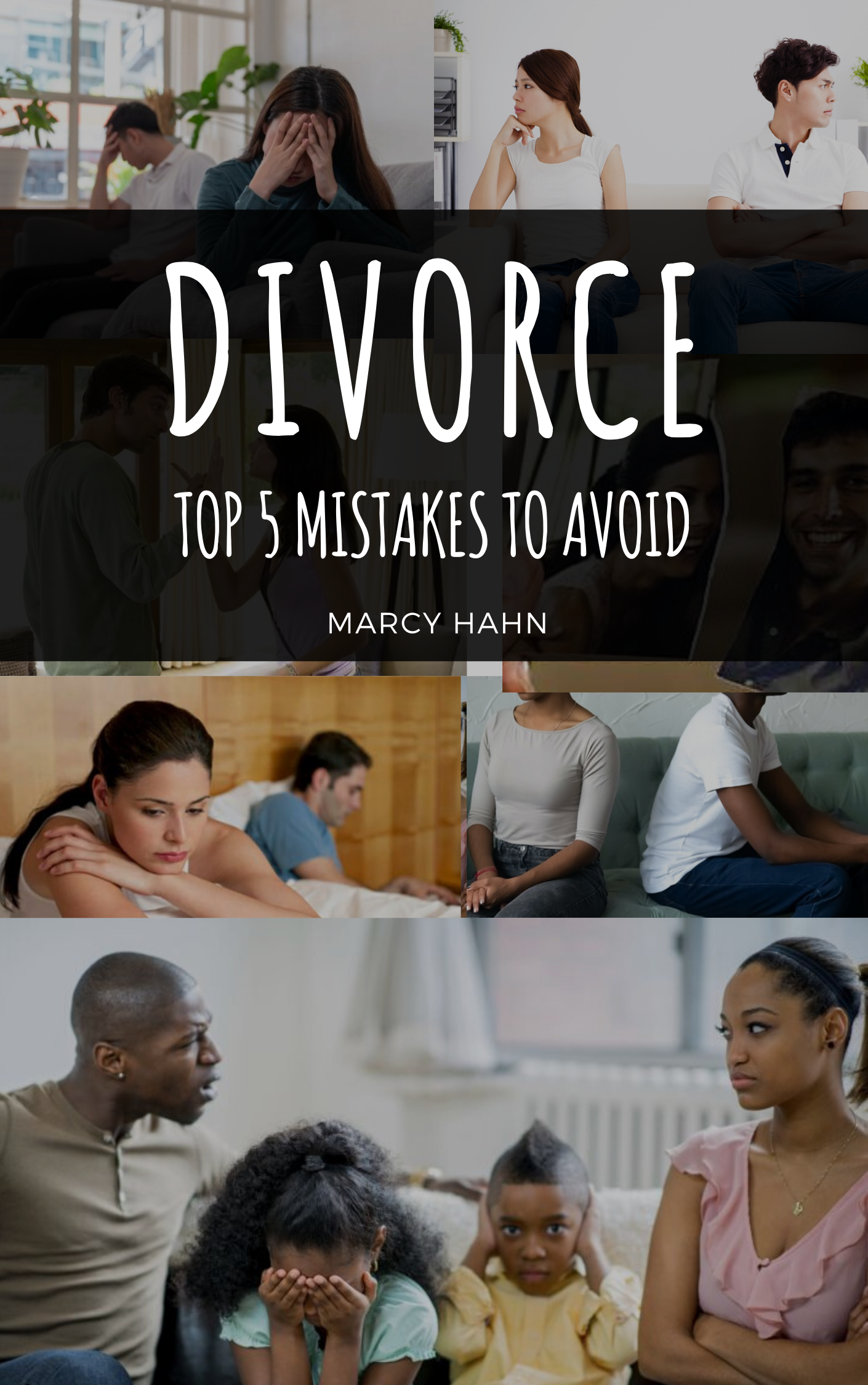
Overview
In this episode, we’re going to cover how to interview your divorce lawyer. So this is one of the most important decisions you’re going to make. You’ve probably decided by this point, which method of divorce you’re going to follow and now it’s time to decide who is going to be the advocate that is going to help you through this process. This is such an important decision because you are about to make life-altering changes, these decisions that you make as you go through this process are going to change your life forever. You’ve got to make sure that the advocate that you choose to get you through it is the right fit for you.
Learn More
Questions Your Divorce Lawyer Doesn’t Want You To Ask – BUT Ask Them Anyway
You’ve got to get to know them personally, so I always recommend that you interview more than one lawyer. Lots of times at this point in your life, you’re thinking, ‘oh my god, I just want to get this over with. I just want to pick somebody, I want it to be this person and I just want it to be done and I just want it to be over’ – And that’s really not the right way to think about it. You really just have to take a deep breath and put a little bit of time and effort into making sure that the person that you hire is the right fit for you.
The next major topic of things to really understand when you’re interviewing a lawyer, is how much it is going to cost.
I would ask them a little bit about themselves personally as it’s really important to make sure that you can feel comfortable with this person throughout the process. And another great question to ask them is:
What is your approach to a divorce case? You want to know whether this person tends to be really aggressive or tends to be more settlement minded. What is their typical approach to how to resolve a divorce case?
So you really want to make sure that you understand how they approach cases, and what their level of aggressiveness is because maybe you’re looking for somebody who can really be aggressive and scorch the earth – but maybe you’re looking for somebody who is more settlement minded and can help you get through the process in different way. Either way, you need to really understand what level of energy they’re going to be coming at it with.
The second category of questions I think you should focus on when you’re interviewing a lawyer is to ask them what areas of practice they specialize in.
Some lawyers have boutique practices where all they do is focus on family law, whereas some lawyers split their practice among different practice areas – and there’s really not a right answer here. Many people choose to hire a lawyer who specializes only in family law, and sometimes it’s more important to have a lawyer who has a broader experience base. For example, in my practice, I spend a little more than half of my time on family law, but I spend the other half of my time working with corporate clients. I spent time at a Fortune 10 company before I opened my own practice, and I really feel like my business law experience helps me in the family law context, because what you’re really doing is helping a family essentially divide a business when it comes to the financial aspects of your divorce. So, one of the things to think about when you’re interviewing counsel is: do you want somebody who only does Family Law all the time? Or do you want somebody who has a little bit of a different perspective or a more balanced set of experiences? And again, there’s no right answer here. It’s just something to keep in mind so that you can find the right lawyer for you.
The second category of questions I think you should focus on when you’re interviewing a lawyer is to ask them what areas of practice they specialize in.
This is probably one of the biggest pain points of divorce – how much is this going to cost me? How am I going to be billed? And how much money is it going to take to get me to the finish line?
There are a number of different ways that lawyers charge their clients and understanding that will help you ask the right questions when you’re interviewing counsel so that you can clearly understand how you’re going to be charged. Many times divorce counsel require an upfront retainer of a certain amount and the way that works is you pay them a certain amount of money upfront. They then put that money into their trust account, and then they bill you on an hourly basis against that account. Once that money is gone, or they’ve earned the money that is from that retainer agreement, then that retainer needs to be replenished. So that’s one way to go about it.
Some lawyers charge only hourly – they don’t require an upfront retainer, or they require a lower amount of a retainer to get started, and then they just charge you on an hourly basis. Another way of charging is to do things on a flat fee. Sometimes, like in the collaborative divorce practice, there is a way that lawyers charge a flat fee for X number of dollars. They are going to say that I’ll get you through this entire process and you pay one fee, you’re not paying them on an hourly basis. So it’s really important when you go interview a lawyer, ask them how do they charge – do they charge on a flat fee? Do they charge on an hourly basis? If they charge on an hourly basis, here are some other things that you want to ask them about:
What is your hourly rate? And how are you charging that, in what increments? Some lawyers charge in increments of 15 minutes, some lawyers charge in increments of 10 minutes, very important to understand the increments in which you’re going to be charged. The other thing is, does this lawyer have support staff that they rely on such as a legal assistant or also known as a paralegal who is also going to be part of the team? Are they going to be working on your case? Are there other associates that may be working on your case? And what are their hourly rates? It’s really important to understand that.
Another question you should ask your lawyer is whether they do any limited scope representation.
This is a growing area in family law and it allows you to hire a lawyer for a specific purpose, like a specific hearing or a specific event, or you can carve out parts of the process that will be covered and not covered. For example, if you only want a lawyer to help you review pleadings, or help you review certain discovery responses, etc, you can enter into some limited scope representation arrangement with the lawyer and it can help you keep your costs down. Another thing that I’ve done in some cases is you could have certain parts of the process covered only on a flat fee and then other parts of the process that will be covered hourly. For example, if you hire a lawyer, they may say that for X amount of dollars, they will handle all correspondence, all meetings, all pleadings, all drafting of the judgment, all mediation summaries, etc. But if you end up having to do a contested evidentiary hearing, that’s going to be charged on an hourly basis. So that’s something to ask about, because it can help to manage the cost. Now, not every lawyer is going to be able to do that, because it may depend on the specific ethical rules in their jurisdiction as to whether that type of arrangement is an option, but I think it’s a great tool to ask about and see whether it can help you reduce the cost of your divorce.
Another thing you should definitely ask your lawyer is what did they think the total cost of the divorce will be?
I’m going to tell you that lawyers hate this question. I hate this question. Because it’s really hard to estimate… One of the biggest factors that will impact how much your divorce is going to cost is how much fighting is going to happen and that can be so hard to predict. You may go into it thinking, ‘oh, we’re going to get along just fine. We’re not going to have any need for any contested hearings or any motions.’ But in fact, once you’re down that road, it may end up looking like something very different than what you thought it would look like at the outset. Sometimes lawyers have a hard time estimating what the total cost will be and it can depend on not only how much fighting there’s going to be, but also it can depend on the extent of your assets. How many properties do you own? How many businesses do you own? Are there going to have to be a lot of independent business evaluations? Are you going to have to have a lot of real estate appraisals? These are all things that are going to impact the total cost of your divorce. But I think it’s good to ask a lawyer that question. It’s a question they’re not going to be happy to answer, but you’ll learn a lot about that lawyer in terms of how they choose to handle the answer to that question.
Another thing you should ask them about it their communication style and their responsiveness.
What can you expect from them? Are they going to be texting you? Are they going to be emailing you? Are they going to answer your call on the weekend if you run into an emergency with one of your kids? How are they going to handle coverage for you when they’re on vacation? Do they have somebody else in their office that can respond to your needs? How does that work? These are important things to ask because you really want to set those expectations upfront. The next thing I think you should ask them is how well the lawyer knows the judges in your area and the local court procedures. It’s really important to ask about this because having a lawyer that’s active in the community and has a strong reputation with the judges and the court staff can help ensure that you have the best advocacy. Another reason why that’s important is that in many family law cases, the judges are the fact finders. So unlike other settings, where the jury may make a decision about your case, in family law cases, a lot of times it’s just up to the judges that may be assigned to your case to make a decision about what should happen in your life. It’s important that the lawyer that you’re going to be using is going to have a good relationship with the judges in your community, and really understand those local practices.
~Until next time, be kind and be true to yourself~

Here’s a Free Gift from Marcy
Top 5 Divorce Mistakes to Avoid by Marcy Hahn
ONE Lucky Person that Downloads the FREE Gift WILL WIN a Free 90-Minute Session with Marcy Herself!
